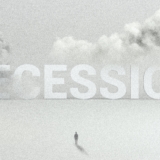Recession Risk May Have Subsided as Encouraging Economic Data Emerges
As 2023 unfolds, fears of an impending economic downturn caused by a surge in interest rates have not materialized as predicted. Encouraging economic indicators, including robust job market figures and cooling inflation, have led some experts to suggest that the risk of a recession may have subsided. These positive signals have contributed to the stock market’s strong performance, recording the best first-half gain since 2019, aided by increased investor interest in artificial intelligence.
Leading economists, including Seth Carpenter, Paul Krugman, Robert Hoffman, and Bank of America strategists, offer their insights on the trajectory of the economy:
Seth Carpenter, Global Chief Economist at Morgan Stanley: Carpenter emphasizes the strength of the labor market as a key factor supporting the economy. While there has been some slowing, the rate of job gains remains strong, contributing to resilient spending. Carpenter believes that this resilience, coupled with the gradual rate hikes by the Federal Reserve, indicates that a recession is unlikely.
Paul Krugman, Nobel Prize-winning economist: Krugman notes the encouraging economic news, such as falling inflation and no signs of a recession. He highlights the significant job growth over the past year and the unemployment rate remaining near a 50-year low. Krugman’s observations challenge the media’s drumbeat of dire warnings about a recession, suggesting that the economy has performed better than anticipated.
Robert Hoffman, Head of Investment Counselors in South Asia at Citibank: Hoffman acknowledges a shift in expectations regarding the timing of a potential recession, with the anticipated downturn now pushed further into 2024. He sees compelling valuations and opportunities in the US mid-cap space if a recession can be avoided or delayed.
Bank of America Strategists: Bank of America (BoA) strategists highlight the inversion of the yield curve, which may indicate a decline in inflation. They argue that the shape of the curve reflects expectations of decreasing inflation rather than a deterioration in economic growth. The strategists suggest that forward real rates do not price in elevated recession risk, indicating a softer landing for the economy.
Jeremy Siegel, Retired Wharton Finance Professor: Siegel expresses optimism about the stock market rally, noting that momentum remains strong. He believes that it would take a significantly weak economic report or disappointing earnings to shake the rally.
While these expert opinions provide hope for the US economy, it is important to note that economic conditions can change rapidly. Investors and businesses should continue to monitor economic indicators, adapt their strategies, and exercise caution in their decision-making processes.





